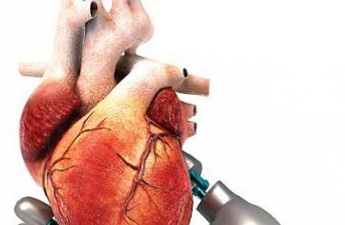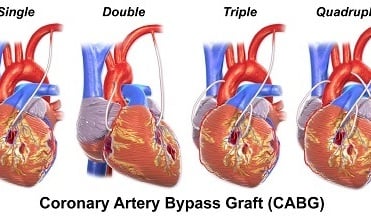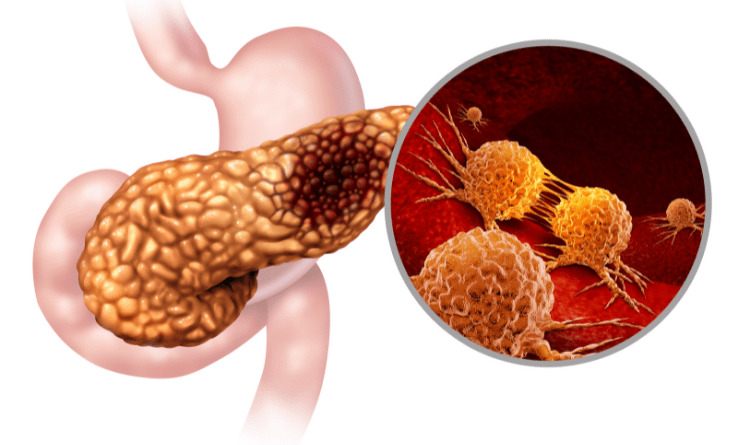Category : Heart
Heart transplant (or Cardiac Transplant) is medical procedure done to replace a diseased and dysfunctional heart with a healthy heart from a donor.

Heart Transplant in IndiaHeart Transplant in India
WHAT IS A HEART TRANSPLANT?
Heart transplant (or Cardiac Transplant) is medical procedure done to replace a diseased and dysfunctional heart with a healthy heart from a donor. In order to remove the heart from the donor at least two or more doctor must declare the donor as brain dead.
HUMAN HEART
Located in the center of the chest the human heart is the most important organ of the body. Its chief function is to pump oxygenated blood in the body. In humans, the left and the right side of the heart works simultaneously.
Right side of the heart –
The oxygen poor blood enters the heart (right atrium) through the inferior and superior vena cava.
When the right atrium contacts the blood moves from right atrium to the left ventricle through the tricuspid valve.
When the ventricle is full with blood from right atrium the right atrium, the tricuspid valve shuts to prevent back flow.
Now when the left ventricle contracts the bloods leaves the heart through the pulmonic valve into the pulmonary artery to the lungs where it is oxygenated.
Left side of the heart-
The pulmonary vein empties the oxygen rich blood into the left atrium from the pulmonary vein.
As the left atrium contracts the blood flows from the left atrium to the left ventricle via mitral valve.
When the ventricle is full the mitral valve shuts and prevents backflow.
Now, as the ventricle contracts, the blood leaves the heart to the aorta via the aortic valve to different part of the body
WHY DO YOU NEED A HEART TRANSPLANT?
Heart transplant is required in case of a failing and dysfunction heart, which cannot be treated by other means. Some of the reasons for heart transplantation are listed below
Congestive Heart Failure - as the heart muscle gets weaken so it fails to pump blood efficiently. It can occur due to
Severe Myocardial Infraction
Viral Infection Of The Heart Muscles
Hypertension ( High Blood Pressure)
Life threatening Valvular Heart Disease
Congenital Heart Condition
Cardiac Arrhythmias ( Irregular Heart Beat)
Pulmonary Hypertension
Chronic Lung Disease
HEART TRANSPLANT PROCEDURE
BEFORE THE PROCEDURE
To determine the eligibility of heart transplant there is a wide range of information which is evaluated by the cardiologist. The evaluation consists of
Psychological and social evaluation- the factors such as stress, finance, support by the family must be accessed well before the procedure.
Blood test- this will help to determine a good donor match.
Diagnostic test- it will help to access the overall health of the recipient. test such as x-ray, ultrasound, computed tomography, pulmonary function test and dental examination. Women may also undergo a Pap test, gynecology evaluation and mammogram.
Others- several immunizations to prevent infections.
DURING THE PROCEDURE
Heart transplant requires stay in the hospital and the stay depends on the patient’s condition. Before the heart transplantation the patient will be advised to
Remove ornaments or any object that interferes with the procedure.
Patient is required to change into a hospital gown.
An intravenous line or a catheter will be placed in the body for the administration of medicine and to the monitor the heart beat and blood pressure respectively.
Excess of hair will be shaved from the area of surgery
Heart transplantation requires to be done under general anesthesia.
A tube will be inserted through the mouth to the lungs which will be attached to the ventilator for the breathing purpose.
Heart rate, blood pressure and blood oxygen level all will be monitored during the surgery
The area is cleaned with an antiseptic before making an incision from the Adam’s apple up to the naval.
Tubes are then inserted into the chest so that blood is pumped through your body by a Cardiopulmonary bypass machine (heart-lung machine).
Now, when the blood is completely diverted to the cardiopulmonary bypass machine the diseased heart is removed.
The donor’s heart will be placed in the patient’s body and blood vessels will be connected.
When the transplant procedure will be completed then the blood circulating from the cardiopulmonary bypass machine will be allowed back from the heart and the machine and tubes will be removed.
The sternum will be rejoined and sutured together with wires.
Tube will be attached in the heart to drain fluid and excess liquid from the heart.
The heart will be shocked with peddle to restart the heartbeat.
When the heart starts to beat, the heart is further assessed to some time to check its functioning.
AFTER THE PROCEDURE
IN THE HOSPITAL
After the surgery the patient is taken to ICU he will be connected to monitors who keep a check on electrocardiogram reading, blood pressure, other pressure, breathing rate and blood oxygen level.
A tube will be placed in the throat, attached to the ventilator so that breathing will be assisted.
Blood samples will be taken frequently to check the status of the new heart.
Immunosuppressant medicine will be given and will be checked closely.
AT HOME
Once you are at home it is very important to keep the surgical area dry and clean. A patient is advised not to drive. There will be follow- up after the surgery which may include blood test, X-Ray and biopsy.
Notify your doctor if you have
Fever or chill
Redness /swelling/bleeding
Increased pain around incision
Difficulty in breathing
What is done to prevent heart transplant rejection?
For proper survival of heart in the patient’s body, the patient has to take medicines to fight rejection for the rest of the life. The most commonly anti-rejection medicines used are-
Cyclosporine
Prednisone
Tacrolimus
Sirolimus
Methotrexate
Usually several anti-rejection medicines is given initially, however the dose of these medicine may change. To assess for the rejection of the new heart, one has to undergo right heart biopsy on a regular basis. Just after the transplant the biopsy is done every week, which later becomes once a month and eventually for a longer period of time.
HEART TRANSPLANT REJECTION SYMPTOMS
General symptoms of heart transplant rejection are-
Fever
Fluid collection in lungs
Decreased oxygen level in blood
Shortness of breath
HEART TRANSPLANT RISKS
Potential heart transplant risks may include
Infection
Bleeding after the surgery
Blood clot that can cause heart attack, stroke or lung problem
Breathing problem
Kidney failure
Coronary Arteriopathy
Medicines used to prevent rejection of the new transplanted heart
CONTRAINDICATION OF HEART TRANSPLANT
Recurrent infection that is untreatable
Metastatic cancer
Other serious conditions
PROGNOSIS
Heart transplant prolongs the life span of people who otherwise would have difficulty to survive. After 5 years, over 70% of the patients gets the benefits of transplantation.
WHY HEART TRANSPLANT IN INDIA
India has grown to become one of the leading countries for cardiac surgeries and other such organ replacement medical care. Indian surgeons are well known all over the world for their skill and experience. Hospitals in India are well equipped with the latest and most sophisticated technology for a successful transplant.
A huge number of skilled professionals provide various treatments to over 65000 medical tourists every year.
LEGAL REQUIREMENTS IN INDIA
The donor should be brain dead
The donor can be -
RELATED (spouse, children, parent, grandparent,) needs permission if the doctor in charge of the transplant.
UNRELATED needs permission of the authorized committee before organ donation.
No buying and selling or organ is permitted in India.
WAITING LIST
It is hard to predict the time of wait for the heart once you are on the waiting list.
FACTS
The donors age does not affects long term survival
A healthy heart (that is not thicken) has better outcomes
During the surgery process your blood will flow through a heart-lung bypass machine. This machine supplies your body with required blood and oxygen when your heart and lungs are stopped by the surgeon
Get in Touch with Medical Experts
Most Searched Blog

Heart Surgery
26,Apr,2023
Read more

Heart Transplant
26,Apr,2023
Read more

Atrial Septal Defect
26,Apr,2023
Read more

Stomach Cancer
26,Apr,2023
Read more